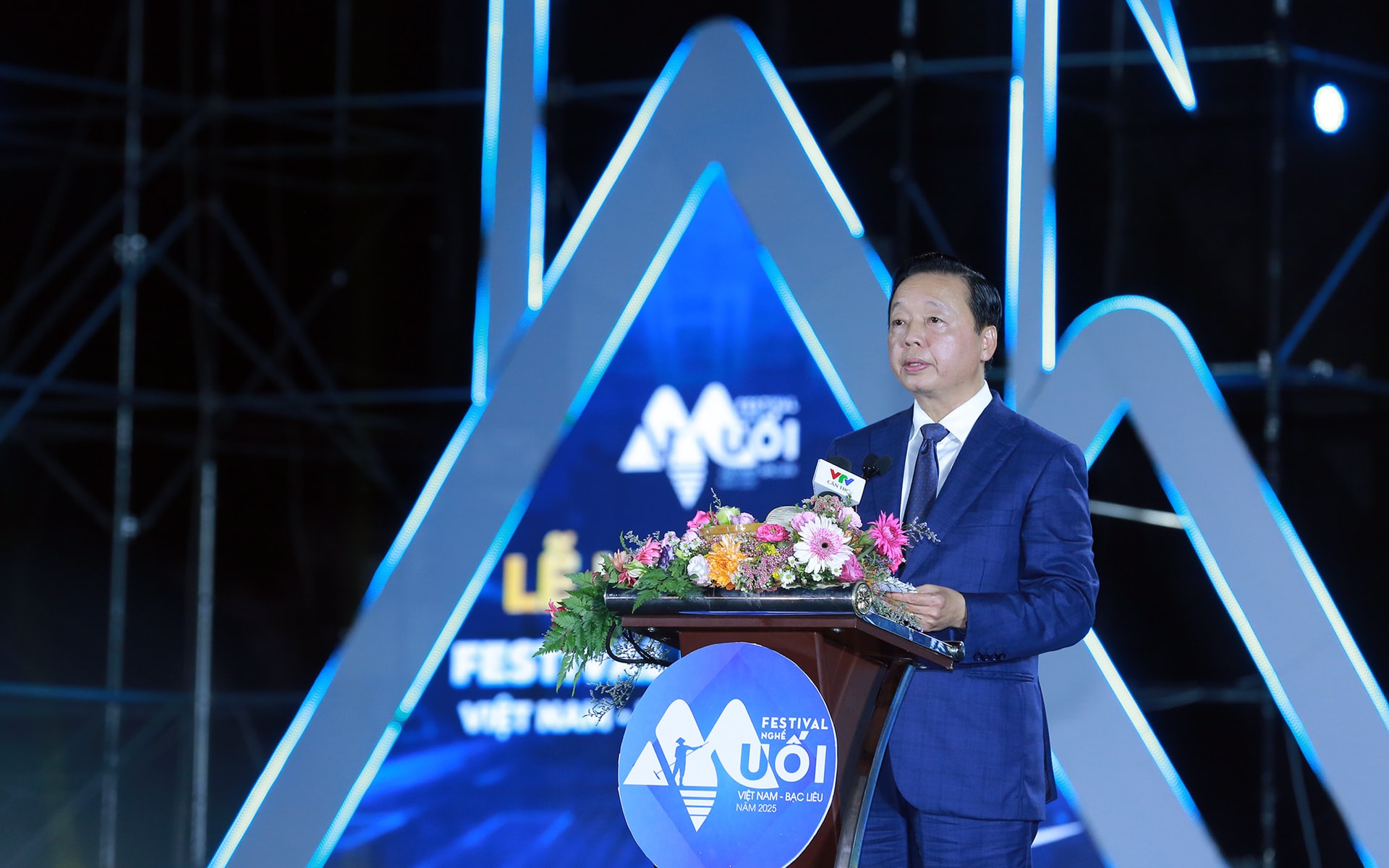
Honoring salt workers who 'carry the sun and carry the rain'
With the theme "Enhancing the value of Vietnamese salt", the 2025 Vietnam Salt Festival is held in Bac Lieu - where the salt industry was formed and developed more than 100 years ago and has been recognized as a National Intangible Cultural Heritage.
This is a big event, with many meaningful activities, from displaying unique salt products, introducing technical advances in production... to seminars discussing how to apply science and technology to adapt to climate change.
The Vietnam Salt Festival also aims to honor salt workers who "carry the sun and rain" to create salt grains with a salty taste, pearls of the sea; promote traditional cultural values; promote and attract investment, link to develop salt production, and enhance the value of Vietnamese salt grains in the domestic and international markets.
According to the Deputy Prime Minister, salt is a simple but indispensable spice in daily meals; an essential commodity, playing an important role in human life and health; an important source of raw materials in the food processing industry, medicine, production of basic chemicals and many other fields.
Not only that, the salt grain also crystallizes within itself the story of the hardships, struggles with the harsh sun, with storms, perseverance, creativity, and loyalty of the salt workers, like the salty lyrics in the folk song " Shallow Sea" : Long Dien salt is salty with loyalty.
As a coastal country, Vietnam has a natural advantage to develop the salt industry since ancient times, and it has become an inseparable part of the national life and culture. Currently, the salt industry is a livelihood, creating jobs for about 12,000 salt-producing households in 9 salt-producing regions in 21 coastal provinces and cities.
Vietnamese salt has gradually built its brand and geographical indications such as: "De-Gi Salt" of Binh Dinh province, "Kosal Bamboo Salt" of Quang Binh province, "Sa Huynh Salt" of Quang Ngai province, "Ba Ria Salt" of Ba Ria-Vung Tau province, "Tuyet Diem Salt" of Phu Yen province... exported to markets in Europe, America, Japan, Korea... and built a sustainable distribution channel.
In particular, when talking about salt, it is impossible not to mention Bac Lieu - the land known as the "salt capital" of Vietnam. With more than 1,400 hectares of salt fields, an annual output of up to tens of thousands of tons, Bac Lieu is not only the largest salt producer in the country but also a place that preserves a unique cultural feature.
Bac Lieu salt, also known as "Ba Thac salt", has long been famous for its high quality, rich flavor, and is exported to many countries. In 2013, Bac Lieu salt was granted a geographical indication certificate. In 2020, the salt industry in Bac Lieu province was recognized as a National Intangible Cultural Heritage, affirming the unique value of this land.
The Deputy Prime Minister was impressed by the efforts of Bac Lieu province in preserving and developing the salt industry. From the conversion to producing white salt on canvas, applying mechanization, to building infrastructure to serve the salt industry - all show the aspiration to rise of salt farmers and local authorities. Bac Lieu does not stop at making salt, but also combines tourism and culture, turning salt fields into attractive destinations, so that visitors not only see salt grains, but also understand the story of the people who make it. This is a very correct direction to enhance and extend the value chain of Vietnamese salt grains.
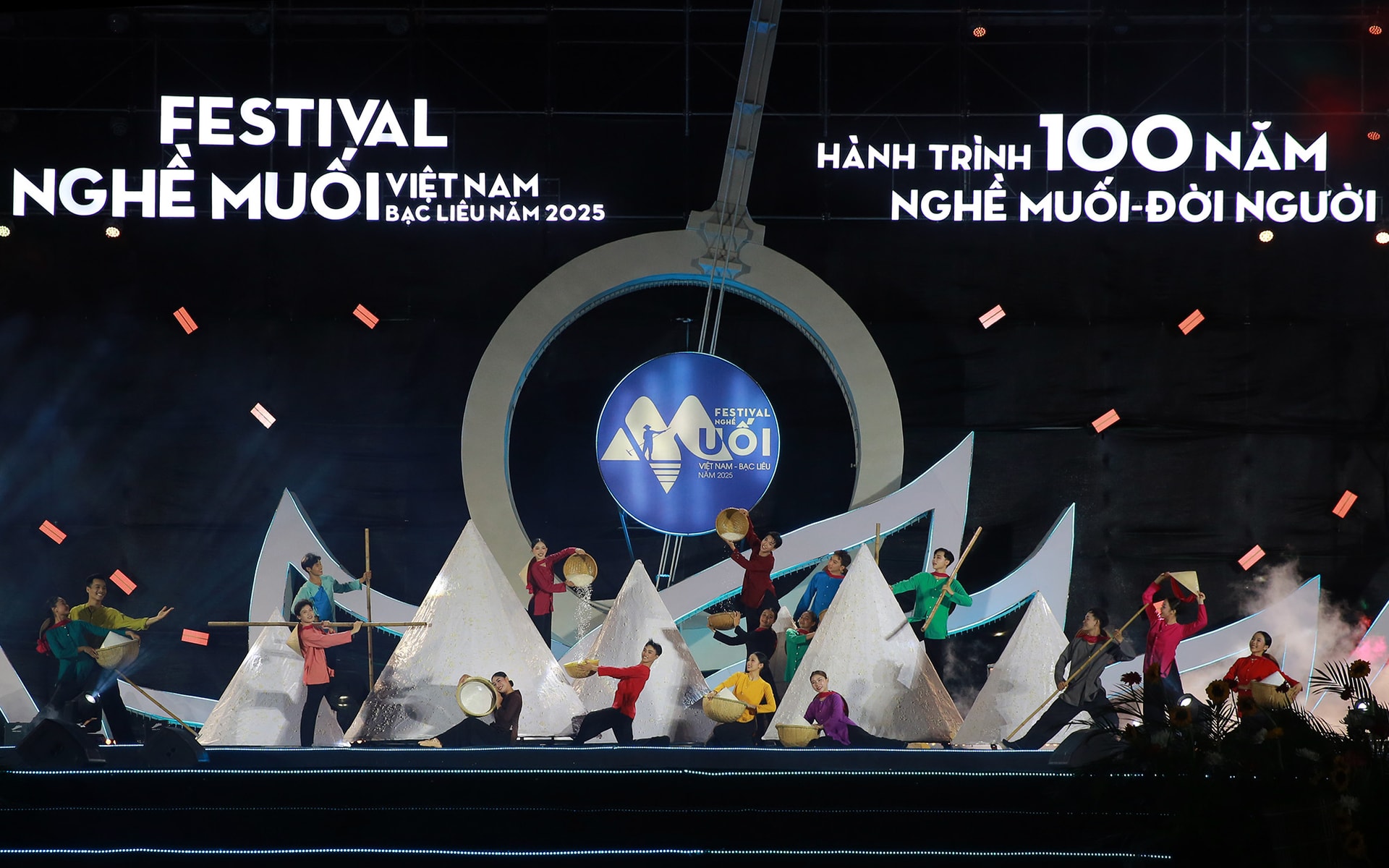
Urgent requirements and expectations of salt workers
Besides the great advantages, the Deputy Prime Minister said that we must frankly admit that the Vietnamese salt industry is still facing many challenges.
Climate change causes increasingly erratic weather patterns and more extreme natural disasters, affecting salt production and infrastructure.
The capacity to organize production linkages and apply technology to improve productivity and product quality to meet market demands is still limited. In reality, there are still too few links between businesses and salt farmers to increase the value of salt grains. "It is heartbreaking that after hundreds of years, in today's salt fields, human labor is still replacing machinery, and just one rain can make the salt farmers' efforts go down the drain," the Deputy Prime Minister shared.
The value of salt has not been improved, the output is unstable, the profit is still very low, the income of salt farmers is only 70% of the national average income.
The Deputy Prime Minister affirmed that improving productivity and enhancing the value of Vietnamese salt is an urgent requirement in the current period. Salt farmers expect proactive, positive and effective participation of ministries, central agencies and localities to focus on investing in upgrading infrastructure, technology, developing production, processing, diversifying salt products; and having appropriate policies to ensure livelihoods and increase income for salt farmers.
"The Festival is a commitment of the Government, ministries, branches and localities to accompany people, together find new directions, so that salt becomes a product of high economic value, the pride of Vietnamese people," said the Deputy Prime Minister.
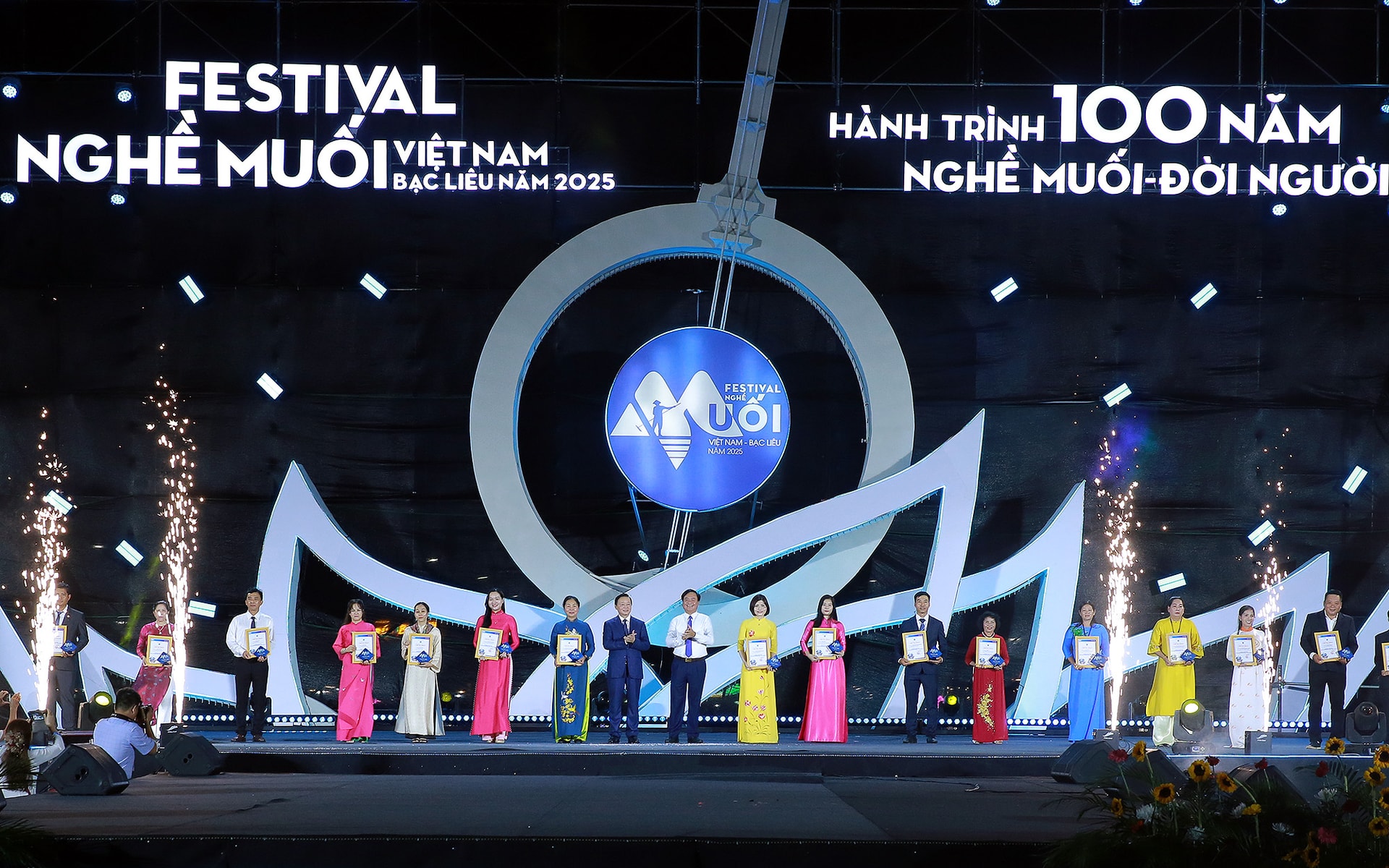
Create breakthroughs in infrastructure, improve productivity, diversify products
The Deputy Prime Minister requested the Ministry of Agriculture and Environment to coordinate with the Ministry of Industry and Trade, the Ministry of Science and Technology, the Ministry of Culture, Sports and Tourism, and the People's Committees of coastal provinces and cities to focus on synchronously implementing 6 solutions.
Firstly, review and develop salt areas in places with favorable natural conditions in a concentrated, large-scale direction to form industrial salt production areas linking production with processing and recovery of post-salt products, diversifying salt products in localities such as Bac Lieu, Ben Tre, Ninh Thuan, Khanh Hoa, Nghe An...
Second, focus on implementing breakthrough solutions, investing in renovating and upgrading salt industry infrastructure; applying advanced science and technology, improving productivity, quality, preservation, diversifying products, ensuring food safety and hygiene, and increasing the value of salt products.
At the same time, focus on building geographical indications and developing salt brands typical of each region. Particularly for Bac Lieu province, it is recommended that ministries, branches and the provincial People's Committee continue to improve quality standards and promote the Bac Lieu salt brand internationally, so that not only people in the country but also friends around the world know about our salt.
The Ministry of Industry and Trade shall coordinate with ministries, sectors and localities to continue promoting the development of industries using raw materials from salt, such as food processing, healthcare and chemical industries; gradually reduce imports and move towards exporting natural sea salt products containing many minerals beneficial to health.
Pay attention to supporting and creating conditions for organizations and households to develop OCOP products for salt and salt products locally, protect trademark ownership for salt products in localities, and promote trade of salt and post-salt products.
Third, develop experiential tourism products associated with agricultural and salt production. Salt fields are not only production sites, but also cultural assets and salt industry experiential tourism resources for tourists to visit, learn about the production process, participate in harvesting activities, and enjoy local dishes, thereby creating more income for local people and promoting the image of Bac Lieu and the Vietnamese salt industry.
Fourth, focus on supporting livelihoods and improving the lives of salt farmers. The Government will direct central and local ministries and branches to continue to have policies to support capital, vocational training, insurance, and risk reduction for salt farmers.
The Deputy Prime Minister hopes that businesses and cooperatives will join hands to create a chain from production to processing, increase value, extend the value chain, and consume products, so that people no longer have to worry about "good harvest, low price" and "salt grains are bitter from sweat".
Fifth, effectively adapt to climate change. Climate change is a major challenge for the salt industry. Therefore, it is necessary to invest in research and develop solutions, such as irrigation systems and soil improvement, so that people can confidently produce even when the weather is unusual.
Sixth, the salt festival must connect producers, processors, and consumers of salt products with salt farmers to build chains to diversify salt products; at the same time, promote salt products along with cultural values rich in identity, thereby enhancing the value of Vietnamese salt in general and Bac Lieu in particular.
The Deputy Prime Minister emphasized that although salt grains are small, they contain the strong vitality of the land and people of Vietnam. The Vietnam Salt Festival - Bac Lieu 2025 is a promise from the Government, ministries, sectors and localities to salt farmers, to work together to bring salt grains far and wide, so that the salt industry is not only a heritage but also a basis for economic, cultural and tourism development in the new era.
Let's join hands and contribute to raising the value of Vietnamese salt, not only for economic benefits but also for the development of traditional culture and the community.
Source: https://baotainguyenmoitruong.vn/cung-nhau-tim-ra-huong-di-moi-de-hat-muoi-viet-nam-vuon-xa-387355.html





































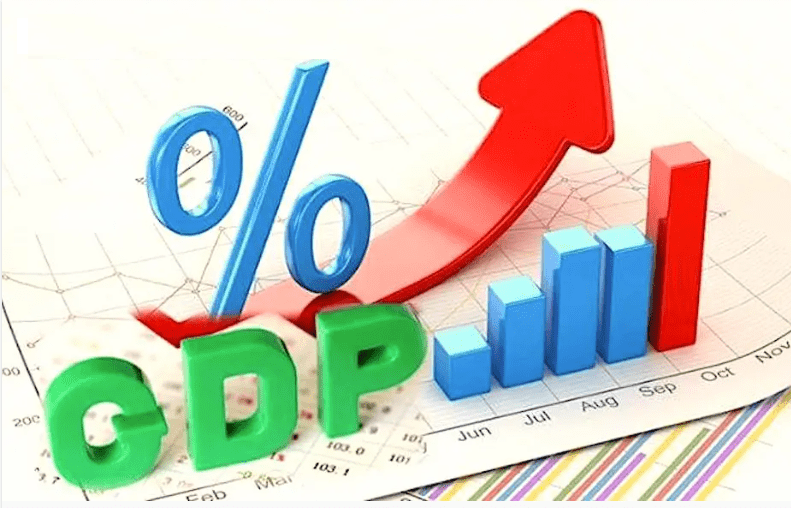
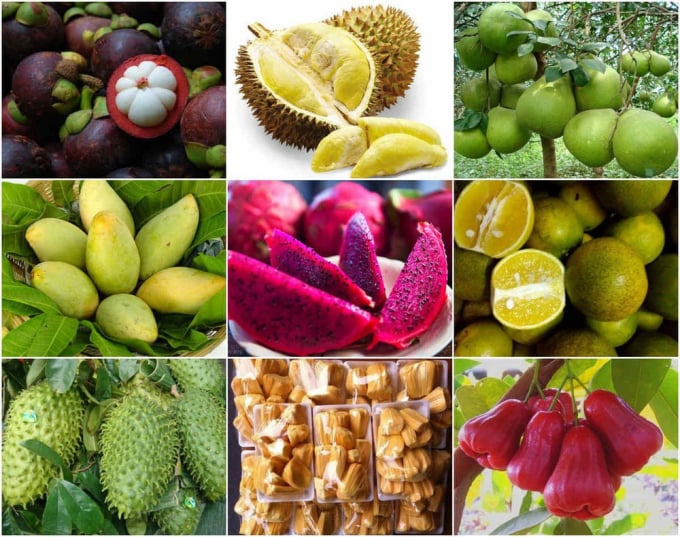

Comment (0)